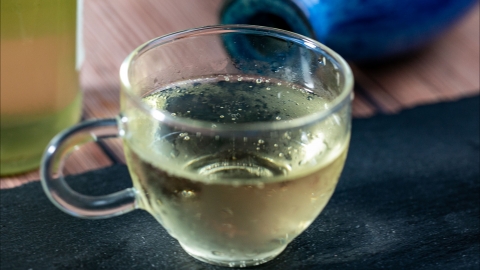Which foods should not be taken with medication?
When taking medications, consuming alcohol, tea, coffee, spicy foods, raw or cold foods, and greasy foods along with the medications may result in interactions that could affect drug efficacy or increase the risk of adverse reactions. If any abnormalities occur, prompt medical attention is recommended. The detailed explanation is as follows:

1. Alcohol
Alcohol can interact with various medications. For example, taking alcohol with cephalosporin antibiotics may trigger a disulfiram-like reaction, which can be life-threatening in severe cases. Additionally, alcohol may affect the metabolism and excretion of drugs, reducing their effectiveness or increasing drug toxicity. Therefore, alcohol consumption should be avoided during medication treatment.
2. Tea and Coffee
Tea and coffee contain ingredients such as caffeine and tannic acid, which may interact with certain medications, reducing their efficacy or increasing the risk of adverse reactions. For instance, caffeine may interfere with the effects of some sedatives or hypnotics, while tannic acid may combine with certain drugs to form insoluble precipitates, affecting drug absorption. Therefore, excessive consumption of tea and coffee should be avoided during medication treatment.
3. Spicy Foods
Spicy foods, such as chili peppers and Sichuan peppers, may irritate the gastrointestinal tract and affect drug absorption. Additionally, spicy foods may intensify gastrointestinal irritation caused by certain medications, leading to discomfort such as stomach pain and diarrhea. Therefore, excessive consumption of spicy foods should be avoided during medication treatment.
4. Raw or Cold Foods
Raw or cold foods, such as ice cream and cold beverages, may cause gastrointestinal discomfort and affect drug absorption. Moreover, these foods may lower the temperature of the gastrointestinal tract, slowing the dissolution rate of medications and thus affecting their efficacy. Therefore, excessive consumption of raw or cold foods should be avoided during medication treatment.
5. Greasy Foods
Greasy foods, such as fatty meats and fried foods, may burden the gastrointestinal system and affect drug absorption. Additionally, greasy foods may reduce the bioavailability of certain medications, weakening their therapeutic effects. Therefore, excessive consumption of greasy foods should be avoided during medication treatment.
In addition, smoking should be avoided when taking any medication, as nicotine in tobacco can accelerate the liver's degradation of drugs, thereby reducing their efficacy.








